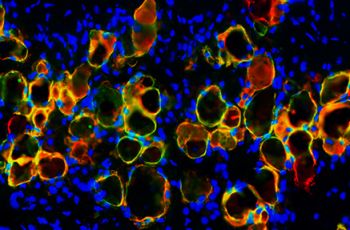WASHINGTON (Feb 28, 2018) — Today, questions asked by genetic researchers are often answered using big data, through revealing larger patterns, trends, and other connections. Thanks to a multi-million dollar research project, researchers at the George Washington University (GW) and the University of Georgia (UGA) are partners in a project that will soon be able to provide a way for questions asked by those studying glycoscience to be answered by big data, as well.
“Post-translational modifications along with genomics play an important role in health and disease,” said Raja Mazumder, PhD, co-principal investigator and associate professor of biochemistry and molecular medicine at the GW School of Medicine and Health Sciences. “Using just genomics research for discovery limits scientific advancement – We may not be able to find mutations to explain the prevalence or rate of incidence of a particular disease. For that, we need to understand glycosylation, and we need the resources and tools to support this discipline.”
The National Institutes of Health has jointly awarded a $10 million U01 grant to GW and UGA to build a glycoscience informatics portal, called GlyGen, necessary for glycoscience to advance. GlyGen will also integrate glycan data with gene and protein data, to allow for more effective analysis.
Currently, understanding the roles that glycans play in diseases such as cancer involves extensive literature-based research and manual collection of data from disparate databases and websites. GlyGen will simplify this process by providing scientists with a road map that shows key relationships among diverse kinds of information, allowing them to quickly find and retrieve the most current knowledge available and make rapid progress in their glycobiology research.
“It is impossible to do meaningful glycobiology research without including information from many different disciplines, including genomics, proteomics, cell biology, developmental biology and biochemistry, to name just a few,” said William York, PhD, co-principal investigator, professor of biochemistry and molecular biology at the Franklin College of Arts and Sciences, and member of UGA’s Complex Carbohydrate Research Center.
Mazumder, York, and their research teams are working closely with researchers from the United States, Asia, Europe, and Australia to build GlyGen. This will allow them to leverage work that has already been done in the field and receive input to make sure GlyGen is accessible to researchers without a glycoscience background.
The project, titled “Computational and Informatics Tools for Research in Glycosciences,” will be funded through 2022.
Visit GlyGen for more information.


